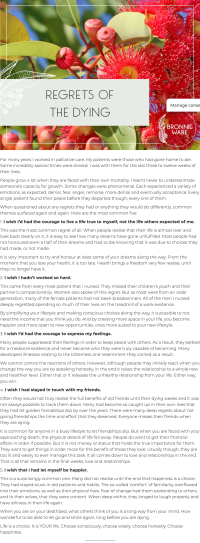A
A.A
Member
- Mar 3, 2025
- 13
Has anyone read this book. I'm nearly done with it. It's about a carer who listed the most common regrets of her dying patients in a blog post that got so popular she released a book. It talks about her care work and patients but also her own life where she almost commits suicide. Although it can feel like it has a bit of toxic positivity in it I'm still finding it a valuable read, was wondering what other people at varying points in their ctb/recovery journey thought of the book.


